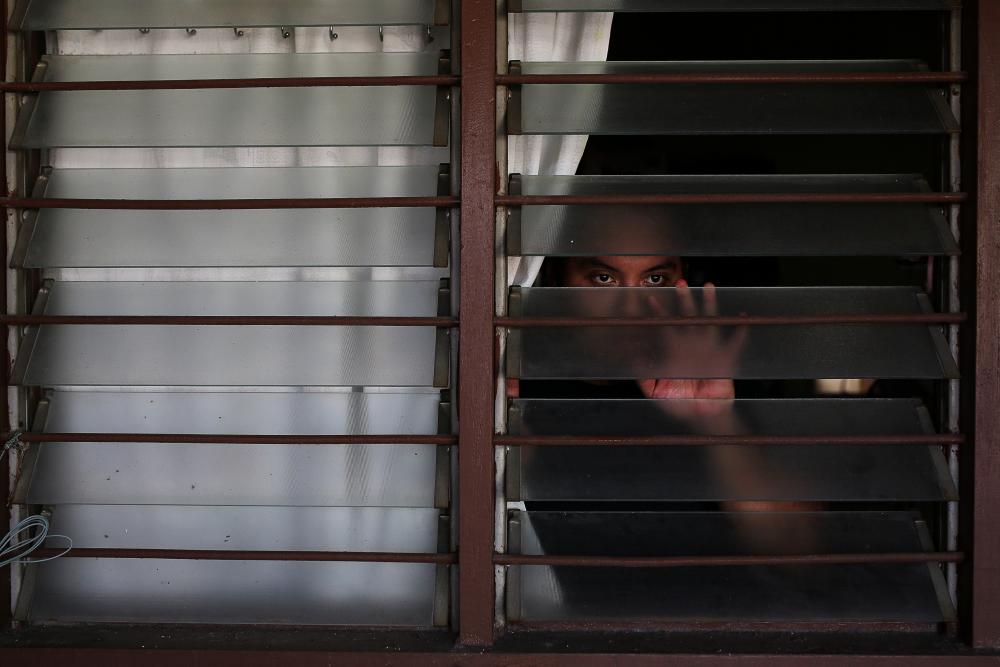KUALA LUMPUR: Between January 2019 and May 2021, 1,708 suicides were recorded in Malaysia, of which 872 (51%) involved teenagers aged between 15 and 18, said former UN Children’s Fund representative to Malaysia and special representative to Brunei, Dr Rashed Mustafa Sarwar.
He said the Covid-19 pandemic caused significant mental health issues due to its restrictions, which affected teenagers.
“Averaging 94 incidents a month in 2021 compared with 51 a month in 2019, the number of suicides monthly nearly doubled across all age groups,” he said.
Prominent consultant forensic psychiatrist Datuk Dr Suarn Singh Jasmit Singh said
the reported number of suicides may not necessarily indicate an increase in cases, but represent a statistical rise caused by greater awareness.
Suarn was the former director of the Ulu Kinta Psychiatric Hospital in Perak and Health Ministry head of Psychiatric Services and adviser.
“It is probable that in the past, some incidents went undetected due to a lack of knowledge and teenagers’ difficulty in communicating about their suicidal thoughts.
“There seems to be a statistical increase in suicides now, probably as a result of teenagers being more proficient at communicating their suicidal thoughts and increased public awareness of the problem.”
Suarn said risk factors for teenage suicides include experiencing verbal and physical abuse, losing a loved one, poor mental health, low self-esteem and mental disorders.
“Suicide is a complicated occurrence that frequently arises from several variables, such as a person’s personality, health and events in their life that precede the act.”
On indicators that parents and educators should look out for in recognising potential suicidal behaviour in teenagers, Suarn said among them are being withdrawn, disengaged from society and showing indifference to routine activities.
He emphasised that such changes are most commonly brought on by traumatic life experiences, such as academic failure or perhaps the death of a loved one.
On the role of mental health services and their accessibility to teenagers, Suarn said in Malaysia, general hospitals now provide mental health treatments that were once only centralised in mental institutions.
He said despite limited resources, there is an increasing need for coordinated and comprehensive mental health care that includes its prevention, early detection and treatment and support for those with serious mental disorders.
“The Health Ministry introduced training modules for mental health promotion in 2000. It included those tailored specifically for teenagers, in which lessons covered topics such as self-awareness,
self-esteem, managing stress and adjusting to life changes to improve their life skills.
“Unfortunately, due to a lack of resources, there was no continuity of these skills in the mental health services of health centres and the community.
“I feel sad when I reflect on this, as continuing with the training modules could have helped reduce incidents of suicides in the country, especially those involving teenagers,” Suarn said.
School student counsellor Muhammad Mustaqim Tajuddin said those in his profession play a role in helping to prevent teenage suicides.
“We can reduce the risk of teenage suicide by identifying at-risk students, providing counselling, developing educational initiatives and creating a secure environment for them.”
Mustaqim stressed that school counsellors may help save lives and ensure that every student has the opportunity to succeed by giving them the necessary skills to deal with their emotional difficulties.
“We also encourage an atmosphere of open communication, which can help in reducing the number of teenage suicides in the future.”









